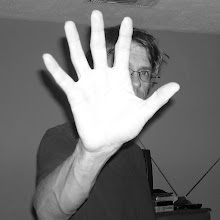Next week we are going to be inundated with hype surrounding Dan Brown's new book (and follow-up to The Da Vinci Code), The Lost Symbol. This is one of those books that's going to be everywhere: the grocery store, the drug store, Blockbuster Video . . . everywhere. In fact, I suspect copies of The Lost Symbol will be especially prominent in places where you don't usually find books. Why? Because The Lost Symbol is a book written for the casual reader--someone who does not frequent bookstores, who does not read book reviews or magazine articles or any kind of non-fiction. Like The Da Vinci Code, The Lost Symbol will be a beach read, an airplane book.
Now, don't get me wrong. I like easy-to-read books from time-to-time. I find it relaxing to read a fast-moving story with simple characters. And if the book contains some puzzles and brain teasers and a dollop of historical conspiracy theory, even better. I read The Da Vinci Code and enjoyed it for its absurd "secret history" and wild theories. But for all its delights, I grew tired of the book's style. It read like a summer movie, complete with action scenes and silly dialog and contrived plot twists. There was an emptiness about it, like a flimsy set dressed with bright and shiny props.
So when I say you're going to see The Lost Symbol for sale at Blockbuster I really believe it. Like so many other bestsellers, it is written for an audience used to watching movies. It will have arch-villains and fast chases and big explosions--all easy to envision because we've seen these things hundreds of times in every formula thriller ever churned out by the big studio factories. There will be no ambiguity and little nuance. The Lost Symbol is a Hollywood book, a perfect example of how one medium has fully encompassed another.
Books and movies have always fed off of one another, or course. And big name authors from Thomas Harris to Michael Crichton have, in the past, essentially pitched films in the forms of novels. (In fact, Crichton's posthumous pirate novel is already being developed as a film.) But it always seemed that past best-sellers, be they Jaws or The Godfather or even Jurassic Park, were written for readers. Now I get the feeling that the audience for many popular books is viewers--people who want to "read a movie." Many books are certainly written that way (even the early Harry Potter books have a big-budget "CGI" feel to them--especially their finales) and so they end up being flat, forgettable, temporary entertainment.
I'm pretty sure that's what The Lost Symbol is going to be. And, yes, there will be a movie. It probably won't big a big hit. But that won't matter: The Lost Symbol will forever live as a rental movie, waiting for the masses at Blockbuster.
1 week ago



Great thoughts. One minor exception to the Harry Potter franchise is that the 6th movie actually left out the final battle! Somewhat of an odd 'Hollywood' decision for them to make.
ReplyDelete